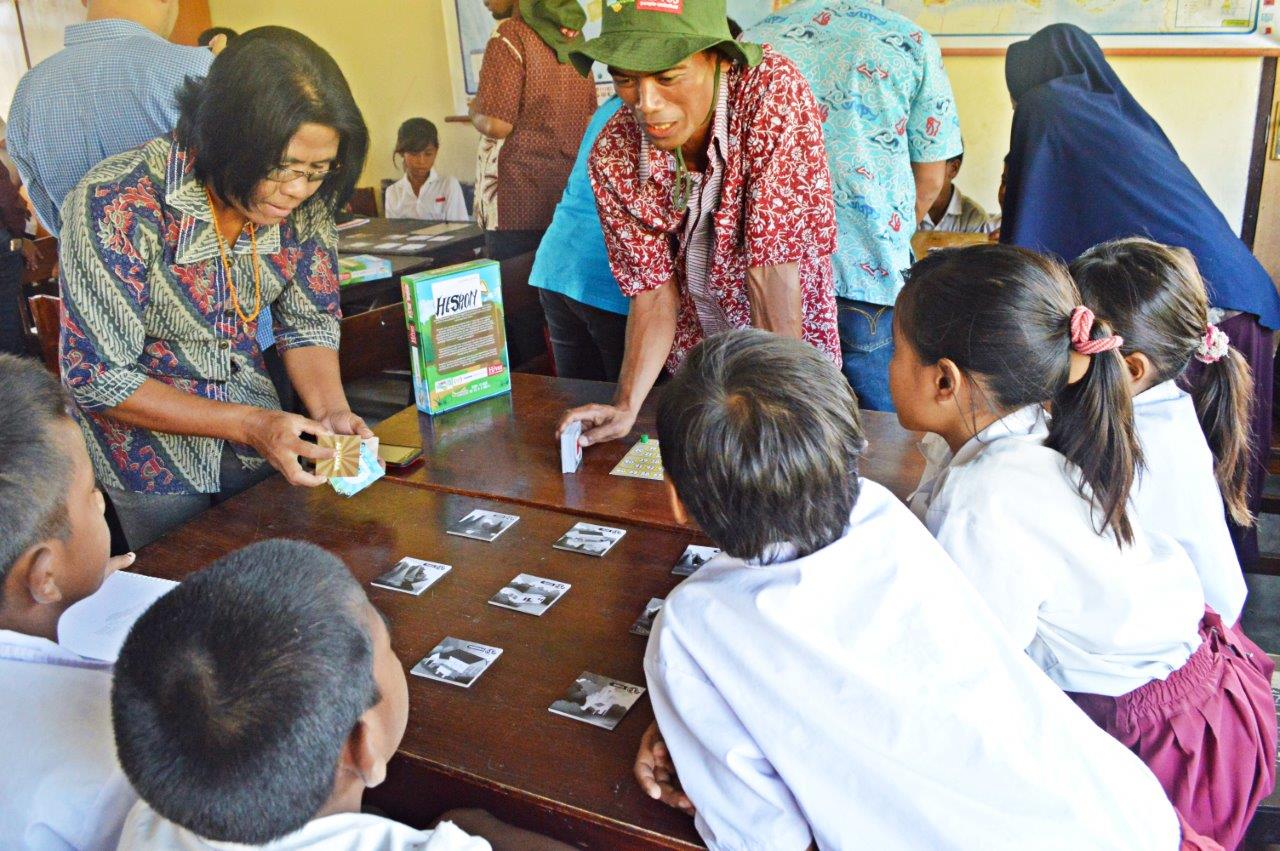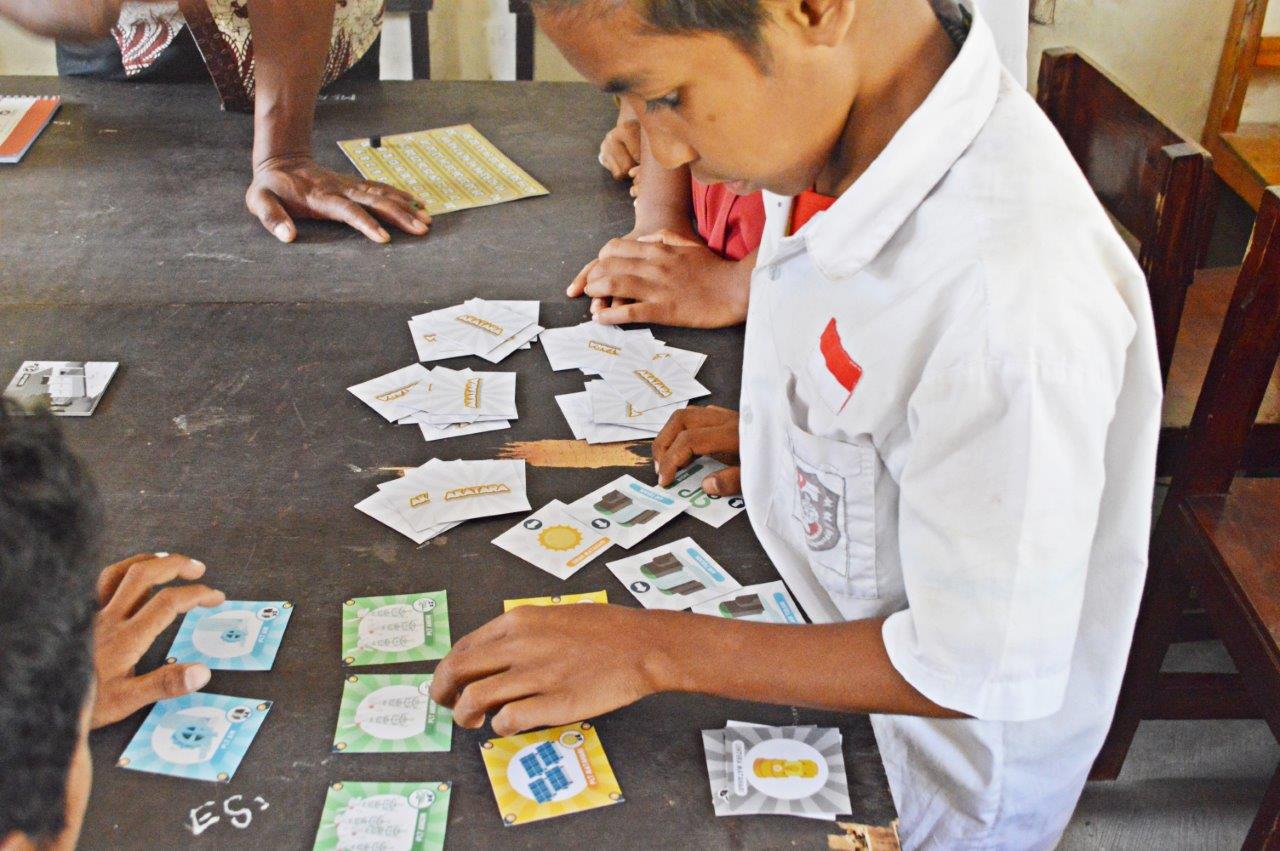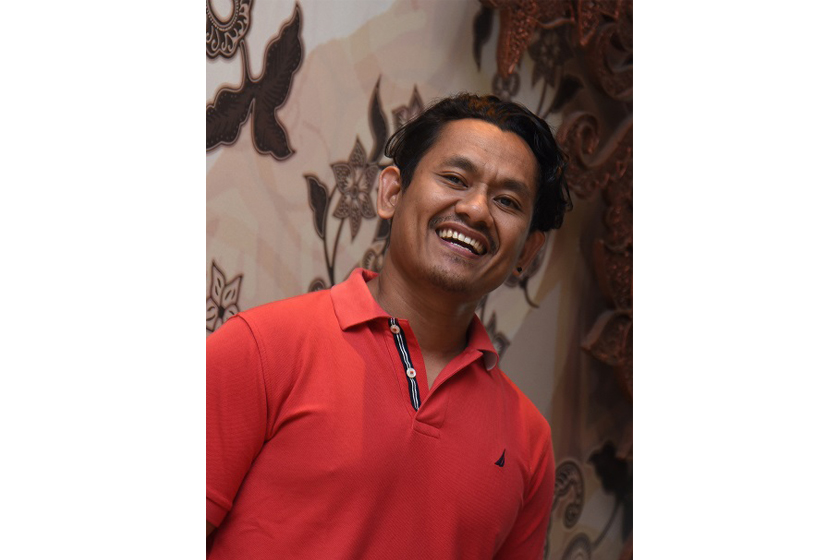More than 120 students in the island of Sumba, East Nusa Tenggara, are having fun while learning about renewable energy through AKATARA, a card game that is the brainchild of Dedy Haning, an Australia Awards Scholarship alumnus.
The idea for the AKATARA project came about when Dedy, who is Deputy Project Manager for Sumba Iconic Island at Hivos Southeast Asia, observed students’ interest in solar panels when the not-for-profit group installed them in schools across Sumba.
“I realised there weren’t any programs targeted to raise awareness of renewable energy amongst school-aged children,” said Dedy, who obtained his Master of Business in Philanthropy and Nonprofit Studies from Queensland University of Technology in 2010.
Using funds from the Australian Government through the Alumni Grant Scheme, Dedy partnered with Kummara, a game studio based in Bandung, West Java, to design a card game that would educate and appeal to the students.
AKATARA, which means “energy” in Sanskrit, uses colourful illustrations depicting a Sumba setting that students can relate to, from the characters’ costumes, architecture, landscape, to the energy sources. The team also made sure that the content was easy to understand, free of jargon, and reflected gender balance.
The goal of the game is for players to work together to build a renewable energy plant to light up houses or public facilities. Each of these facilities has an assigned score that needs to be accumulated to move a green dice, which represents carbon offsets. The catch is the kerosene cards, which, when drawn, add to a player’s carbon points and moves the black dice. The winning team is the one that manages to move the green dice ahead of the black.
The team also developed a renewable energy teaching module that contains simple definitions and examples of renewable energy sources available in Sumba. This module was designed to be delivered before and after the game.
The project far surpassed its target of 12 teachers for the Training of Trainers (ToT) sessions. A total of 37 teachers—65% of them women—from 11 elementary and one junior high school learned how to run AKATARA games and conduct the discussions.
The project then teamed up with RESCO Sumba Terang to conduct a trial at two schools using 15 AKATARA prototypes. RESCO Sumba Terang, where Dedy serves as Managing Director, is a local energy operator and maintenance company that Hivos established to ensure the sustainability of renewable energy plant projects in remote areas.
During the test, 127 students in grades 4 to 8 enthusiastically followed the teachers’ instructions and had tremendous fun playing the game, with shouts of excitement and cheers heard throughout the activity.
The post-game discussion revealed the students had gained a better grasp of the various renewable energy sources and technologies, as well as the advantages. The students also said the game had encouraged them to work together to determine the best strategy. The test run proved so successful that Hivos is considering having the grade 5 and 6 students serve as game facilitators for their peers.
One grade 5 student remarked, “I am happy to have new knowledge. We learn science in our classes, but it doesn’t cover the topic of renewable energy.” Others noted how much fun they had learning through this method.
Teachers, too, saw how useful the game was as a teaching tool, with students learning the importance of reducing fossil fuel use, adopting renewable energy use, and more. The teachers also remarked how the game was helping develop the students’ arithmetic and analytical skills, as well as helping to shape their character.
“After the training, we started discussing the idea of visiting the renewable energy source sites within the sub-districts and having a camping trip nearby,” said Kamba Ipu, Principal of the Kataka Elementary School.
Fredirika Kahewamarak, Principal at the Kataka Junior High School, was just as enthusiastic. “I feel like there should be more games like this. Our issues with schools in remote areas are not only the limited number of books, but also tools to aid with teaching. Everything is very limited in these areas and we simply need to be creative to provide our kids with the best learning experience.”
Upon the success of the test run, Hivos produced 100 AKATARA games to be distributed across other schools in Sumba. Hivos is also considering developing an electronic version of the game after the positive response from students and teachers.
“As the knowledge on renewable energy improves, we expect the teachers to disseminate this information to more schools through their existing networks, and that students will act as renewable energy champions in their schools,” Dedy said.
“The future of green energy is in these children’s hands.”




 AKATARA: a renewable energy card game for students in East Nusa Tenggara
AKATARA: a renewable energy card game for students in East Nusa Tenggara
